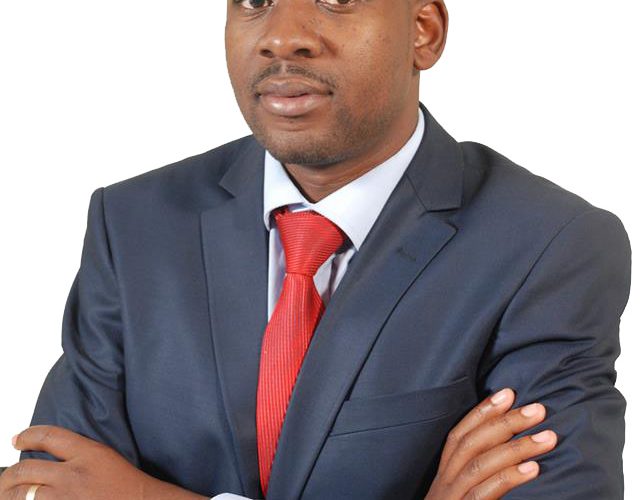


 SOME senior members in the Movement for Democratic Change (MDC-T) are pushing for a massive restructuring of the movement in the wake of the party’s heavy electoral loss in the July 31 polls that saw President Robert Mugabe extending his rule by another five years, The Financial Gazette can exclusively reveal.
SOME senior members in the Movement for Democratic Change (MDC-T) are pushing for a massive restructuring of the movement in the wake of the party’s heavy electoral loss in the July 31 polls that saw President Robert Mugabe extending his rule by another five years, The Financial Gazette can exclusively reveal.
MDC-T hardliners are convinced that all the organs of the party, from the national council right down to branch level, were infiltrated by ZANU-PF moles and that it was impractical to rejuvenate the troubled movement without first plucking out all the bad apples.
Calls for the purge coincide with party leader Morgan Tsvangirai’s whirlwind tour of the country’s 10 political provinces to get feedback in the aftermath of the MDC-T’s disastrous defeat at the hands of ZANU-PF and map the way forward.
While the party attributes its loss to rigging, war drums are getting louder among party faithful who are calling for a thorough audit of the MDC-T’s structures to flush out the supposed infiltrators, accused of sabotaging the party.
The major issues seizing those pushing for a purge is to convince Tsvangirai on how the party could positively identify the moles within its rank and file and how the MDC-T could be restructured without creating conditions for an implosion.
Ever since the MDC’s infamous 2005 split, Tsvangirai has been taking a softly-softly approach to resolving disputes within his party. But hardliners within his party are now calling for action, damn the consequences.
MDC-T Midlands South provincial spoke-sperson, James Tsuro, this week said the easier route to take would be for the party to purge provincial leaders who chose to stand as independents during the elections and subjecting them, along with their supporters, to a disciplinary process in order to manage them out of the party.
Tsuro admitted, however, that it would be difficult to prove the existence of infiltrators.
“Reports would be submitted to the provinces in every province and all those provincial members who had influence and decided to stand as independents together with all the people who supported them would be disciplined. In terms of infiltration, it would be difficult to prove because some of the people came from ZUD, ZAPU, and ZANU-PF (to join the MDC-T),” he said.
With the wounds inflicted by the defeat to ZANU-PF still fresh in the minds of party cadres, there is a section of the MDC-T clamouring for an extraordinary congress to replace some members of the party’s national council, the MDC-T’s main policy implementing organ whose functions include supervising and directing the work of the party and all its organs and overseeing the work of the national assemblies of women and youth.
It has up to 150 members who include Tsvangirai, Thokozani Khupe, Lovemore Moyo, Morgan Komichi, Tendai Biti, Tapiwa Mashakada, Nelson Chamisa, Abednico Bhebhe, Elton Mangoma, Douglas Mwonzora, Theresa Makone, Solomon Madzore and Roy Bennet who has since expressed his intention to step aside.
The MDC-T’s next congress is due in 2016, but members want it earlier to give new office bearers more time to strategise for the 2018 polls. The feeling within the MDC-T is that some of the top officials slept on duty as ZANU-PF claimed the Presidency and the majority of seats in both Parliament and local authorities.
Much of the blame is being heaped on Tsvangirai, whose leadership of the party is now under the microscope. Having been at the helm of the MDC-T for the past 14 years, the former trade unionist has failed to claim the presidency in three presidential polls.
The entire MDC-T leadership is also under heavy scrutiny for getting carried away during the sustenance of the inclusive government, with some of them falling for the trappings of power.
Instead of owning up to their mistakes, a convenient scapegoat for the party’s leadership has been to blame it all on rigging and infiltration.
Tsvangirai was in the Midlands Province last week where he attended the party’s provincial council meeting. Chamisa, the party’s national organising secretary, attended the same meeting where he said there was need to flush out infiltrators who were in the MDC-T.
Sources said Chamisa’s take on that issue was in fact shared by most members of the party’s national executive council.
“It is better to embark on a journey with five sheep only than with five sheep and 600 hyenas in sheep skin because the sheep and their shepherd will never complete the journey,” Chamisa was quoted as having said during the tense meeting.
This week, Chamisa acknowledged the statement but declined to say more on the issue saying it had been made in a closed door meeting. He referred further questions to party spokesperson, Mwonzora who said Giles Mutsekwa, the party secretary for security, was most qualified to comment on the issue.
“Firstly, we are very big, we are the largest party in Zimbabwe and it’s not surprising that in the process some who are not genuine might have joined. It happens all over the world with big parties,” said Mutsekwa.
“But we can’t attribute what has happened to infiltration because that was not an election, but it was an unprecedented fraud, a gigantic fraud that took place.”
Mutsekwa was evasive on what would be the fate of the supposed infiltrators.
Tsuro who attended the same meeting where Chamisa made the remarks said some of the people who were singled out at the meeting for not having been loyal to the party were provincial leaders who chose to stand as independents in elections.
He said there was a process in motion to discipline them together with all those who supported them.
Tsvangirai and his party were handed a shock election result in the just-ended polls, his worst defeat since 2000 and attempts to salvage his political life through court and diplomatic means have all but failed.
The MDC-T’s leader withdrew his earlier attempts to reverse the result of the poll through a Constitutional Court petition.
This week, the Southern African Development Community Election Observer Mission, though expressing reservations on the voters’ roll, endorsed President Mugabe’s re-election as having been held in a peaceful and free environment.